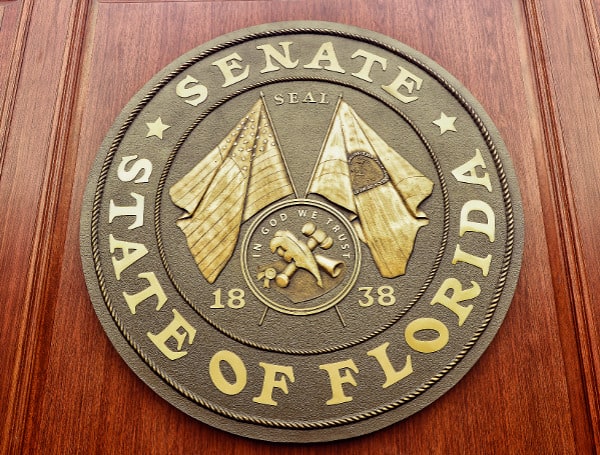Florida lawmakers Wednesday approved spending more than $1.25 billion to help homeowners and communities ravaged by hurricanes and to give a break to motorists who frequently use toll roads.
Finishing a special session that focused heavily on property-insurance issues, the House unanimously passed measures to provide assistance after Hurricane Ian and Hurricane Nicole (SB 4-A) and to give credits to drivers who rack up miles on toll roads (SB 6-A).
Both bills were unanimously approved Tuesday by the Senate and await action by Gov. Ron DeSantis, who is expected to sign them.
The toll measure would expand on a current rebate program and provide 50 percent credits to motorists with SunPass and other Florida transponder accounts in each month they record 35 or more toll-road trips.
Rep. Rita Harris, D-Orlando, suggested lawmakers consider expanding the assistance to people who ride buses and trains.
“In my district, where I live, a lot of people work for the theme parks, they work at the tourist center that keeps the state going,” Harris said. “They’re the economic fuel to our engine. And so, I was hoping that we’d be able to give them a little bit of a cushion as well.”
In the news: U.S. Coast Guard Repatriates 162 People Off The Florida Coast, Back To Cuba
Under the program, the state would provide $500 million in tax dollars to cover lost toll revenues. The account credits would be available for a year, starting Jan. 1.
Bill sponsor Demi Busatta Cabrera, R-Coral Gables, said the measure provides a “highway to prosperity” for commuters.
Democrats unsuccessfully tried to amend the bill to prohibit the likenesses of DeSantis or other politicians from being used to promote the toll-credit program.
The other bill focused on hurricane relief would draw $751.5 million from state general revenue, with $350 million going to the Florida Division of Emergency Management to match Federal Emergency Management Agency public-assistance grants.
Rep. Lindsay Cross, D-St. Petersburg, said it’s the role of the state to make people and communities devastated by the hurricanes “whole.” She also said she hopes lawmakers will further address the issues during the 2023 regular legislative session, which will start in March.
“I do worry that these homeowner reimbursement grants will foster more of a piecemeal approach, where only a few homes or condominiums will be able to benefit from this, decreasing the overall effectiveness of this program,” Cross said. “I would encourage the use of the public assistance grant programs for funds to increase renewable energy capacity or green infrastructure projects.”
House Ways & Means Chairman Stan McClain, an Ocala Republican who sponsored the bill, said the measure “fulfills a lot of immediate needs of our citizens.”
“While we didn’t answer every policy question in this bill, that was not the intent of the bill,” McClain said. “The intent of the bill was to get relief to our citizens. And I think this bill obviously does that.”
Another $150 million would go to the Florida Housing Finance Corp. to assist property owners and renters with housing repairs and relocation costs and $100 million would add to funding for beach-erosion projects.
In the news: Pennsylvania Teen Fugitive Wanted For Murder, Arrested At Mulberry High School In Florida
The measure also would allow homeowners whose properties were uninhabitable for at least 30 days after Ian or Nicole to get refunds and breaks on their property taxes. The bill is timed so residents who sustained damage in Ian can benefit from an earlier-approved tax change that will take effect Jan. 1.
That tax change, crafted as part of the response to last year’s fatal condominium collapse in Surfside, will provide rebates when residential properties are rendered uninhabitable for 30 days or more by catastrophic events.
State economists last week estimated that the property-tax refunds from Ian and Nicole could top $18.5 million statewide, with the biggest impact in Lee County, where Ian made initial landfall.
Visit Tampafp.com for Politics, Sports, and National Headlines, or signup for our free newsletter by clicking here.
Android Users, Click Here To Download The Free Press App And Never Miss A Story. Follow Us On Facebook Here Or Twitter Here.

